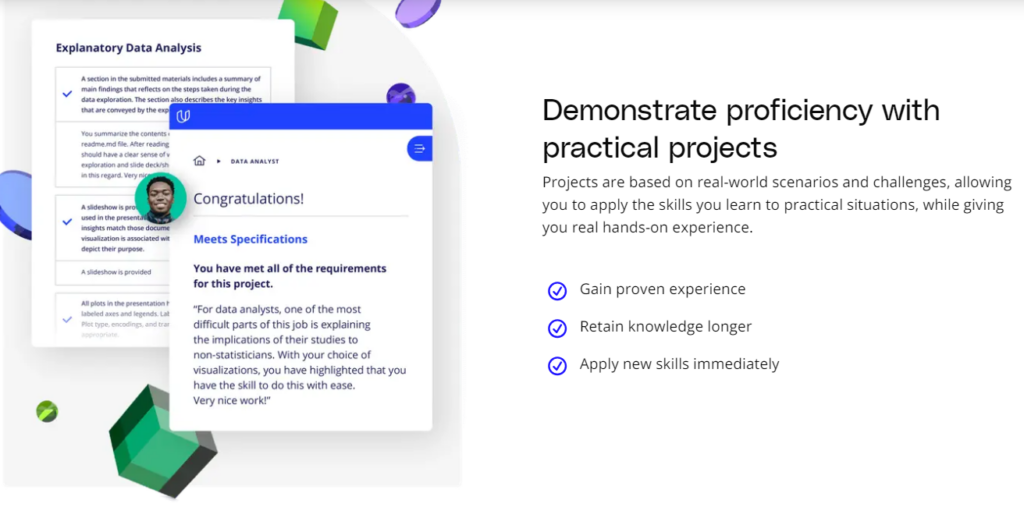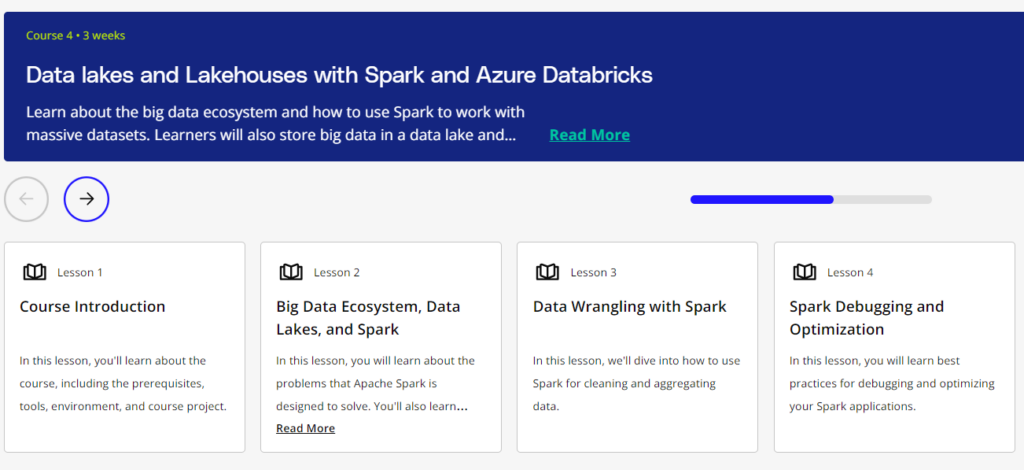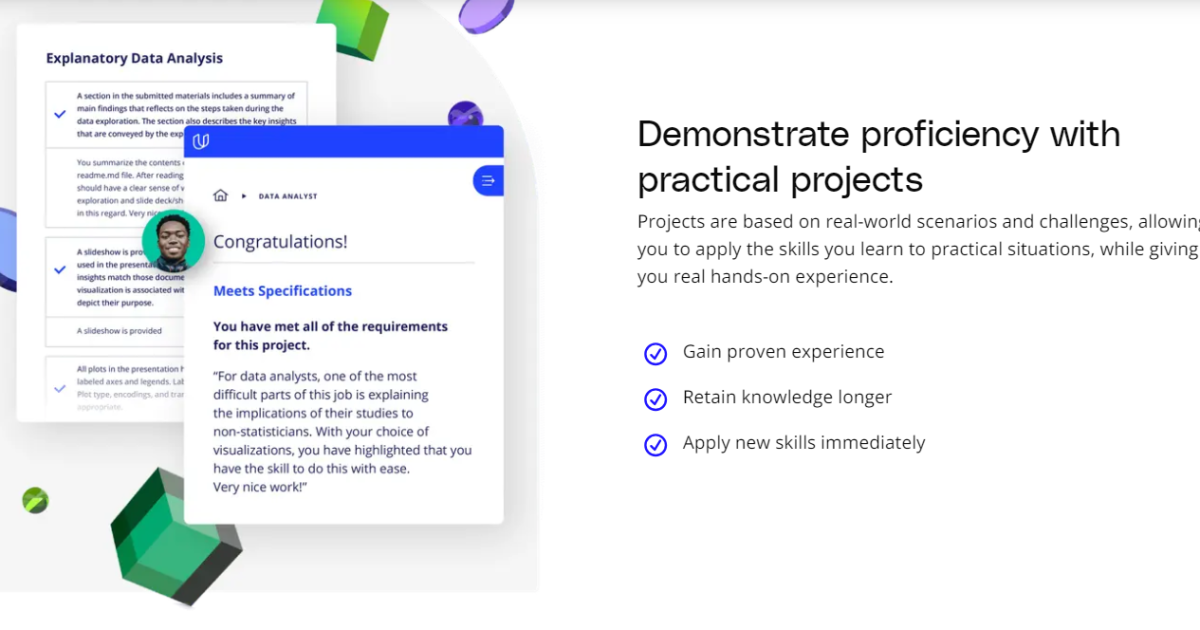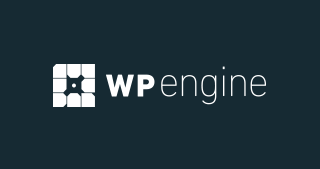In the world of online education, Udacity and edX are two of the leading platforms that have revolutionized the way people learn and acquire new skills. Both platforms offer high-quality courses designed to meet the demands of learners worldwide, but they cater to slightly different needs.
Both cater to different types of learners with varying educational needs, offering a wide range of courses across different subjects. Whether you’re looking to advance your career with job-specific skills or explore academic subjects, these platforms can be great choices.
Udacity is known for its career-oriented “Nanodegree” programs, whereas edX offers university-style courses across a wide range of subjects. In this comparison, we’ll explore the features, pricing, and overall learning experience of both platforms to help you decide which one is better suited for your educational goals.
Overview of Udacity and edX
Udacity Overview:
Udacity was founded in 2011 and focuses on providing career-oriented education, specifically in the fields of technology. It’s best known for its Nanodegree programs, which are designed to equip learners with practical, real-world skills needed in high-demand tech jobs such as data science, artificial intelligence, and web development.
The curriculum is designed in partnership with industry leaders, ensuring that what you learn is relevant to today’s job market. Udacity’s focus is on technology-driven sectors like programming, data science, AI, and digital marketing, making it an ideal platform for learners looking to break into or advance within tech careers.
Udacity collaborates with industry leaders like Google, IBM, and Facebook to ensure the courses are up-to-date and aligned with what companies are looking for in job candidates.

edX Overview:
edX is a prominent online learning platform founded in 2012 by MIT and Harvard. It offers university-level courses across various subjects, making education more accessible to learners around the globe. With its partnerships with top institutions, edX is known for providing high-quality, academically rigorous courses, including opportunities for learners to earn certificates or even university credits.
This platform has become a go-to resource for individuals seeking both personal and professional development. edX is an online learning platform that offers massive open online courses (MOOCs). It provides a wide array of courses in subjects like computer science, business, humanities, engineering, and social sciences.
Unlike many other online platforms that focus on short, skill-based courses, edX brings a more academic approach to its offerings, with courses created and taught by professors from prestigious institutions like Harvard, MIT, Stanford, Berkeley, and more.
edX aims to provide accessible and flexible education to learners everywhere, offering free-to-audit courses as well as more in-depth programs like MicroMasters, Professional Certificates, and even full Online Master’s Degrees.

Features of Udacity and edX
Udacity Features:
- Nanodegree Programs: Multi-month, specialized programs that focus on providing job-ready skills.
- Project-Based Learning: Real-world projects and assignments to simulate workplace scenarios.
- Mentorship and Career Support: Access to personalized mentorship, career coaching, and resume reviews.
- Self-Paced Learning: Students can complete courses at their own speed, making it flexible for different schedules.
- Industry Partnerships: Course content is developed in collaboration with top companies, keeping the curriculum updated and industry-relevant.
edX Features:
- Diverse Course Catalog: Thousands of courses across a wide range of subjects, from humanities to computer science.
- University Credits and MicroMasters: Some courses and programs can be used as credit toward university degrees.
- Audit Courses for Free: Learners can audit most courses for free, though they must pay for certificates.
- Verified Certificates: Earn certificates to showcase skills and knowledge in professional settings.
- Global Partnerships: Collaboration with renowned institutions like MIT, Harvard, and Berkeley ensures high academic standards.
Pricing of Udacity and edX
Udacity Pricing:
Udacity primarily focuses on Nanodegree programs, which are subscription-based and designed to equip learners with job-ready skills, especially in tech fields.
- Nanodegree Programs:
- Typically cost between $399 to $499 per month, depending on the program.
- The duration of these programs varies, with most taking 3 to 6 months to complete.
- Total cost for a Nanodegree can range from around $1,200 to $2,400, depending on the time it takes to finish.
- Scholarships and Discounts:
- Udacity frequently offers scholarships and personalized discounts, making some programs more affordable.
- Learners can often apply for partial or full scholarships, especially in collaboration with companies.
- Free Courses:
- While Udacity is known for paid programs, they do offer some free courses, especially in beginner-level topics like programming and AI.

edX Pricing:
edX offers more flexibility in pricing, allowing learners to choose between free and paid options based on their learning goals.
- Free Auditing:
- Most edX courses can be audited for free. You can access all course materials, but you won’t receive a certificate of completion unless you opt for the paid version.
- Verified Certificates:
- To receive a certificate of completion, you must pay a fee, which ranges from $50 to $300 depending on the course and institution.
- MicroMasters Programs:
- These are multi-course programs designed to provide deep learning in specific fields, and can often count toward a full master’s degree.
- The cost for a full MicroMasters program ranges from $600 to $1,500.
- Professional Certificates:
- Professional Certificate programs, which are focused on skill-building and career advancement, range from $400 to $1,000.
- Online Master’s Degrees:
- edX offers fully accredited online master’s degrees in collaboration with prestigious universities.
- Tuition for these programs ranges from $10,000 to $25,000, depending on the university and the degree offered.
- Financial Aid:
- edX provides financial aid for verified certificates, with discounts of up to 90% for qualifying students.

Summary of Pricing:
| Feature | Udacity | edX |
|---|---|---|
| Course Auditing | N/A | Free for most courses (no certificate) |
| Certificates | Part of Nanodegree programs | $50 to $300 per course |
| Nanodegree Programs | $399 to $499 per month | N/A |
| MicroMasters Programs | N/A | $600 to $1,500 |
| Professional Certificates | N/A | $400 to $1,000 |
| Online Master’s Degrees | N/A | $10,000 to $25,000 |
| Financial Aid | Scholarships available | Financial aid up to 90% |
Both Udacity and edX offer high-quality learning opportunities, but the cost structures are different. Udacity is more expensive, but its focus on career-specific skills and job preparation justifies the cost for many. edX, on the other hand, offers more pricing flexibility with free course audits, affordable certificates, and options for earning academic credit.
FAQs of Udacity and edX
What is the main difference between Udacity and edX?
Udacity focuses primarily on career-oriented, tech-related programs, offering Nanodegrees designed to help learners develop job-ready skills. It’s especially strong in fields like programming, data science, artificial intelligence, and digital marketing.
edX offers a wider variety of academic-style courses across a range of subjects, including technology, humanities, business, and social sciences. edX’s courses are often created in partnership with universities like MIT, Harvard, and Berkeley, and some can count toward university credits or full online degrees.
Can I take courses for free on Udacity and edX?
Udacity does not offer full access to its Nanodegree programs for free. However, it offers some free course previews and individual free courses, mainly focused on introductory topics like programming or data science.
edX allows you to audit most courses for free, which means you can access course materials without paying. However, you must pay for the verified certificate if you want proof of completion or access to graded assignments.
Which platform is better for career-focused learning?
Udacity is more suited for learners who want to focus on career development, especially in technology-related fields. Its Nanodegree programs are designed to give you hands-on, job-ready skills and come with additional benefits like career coaching, mentorship, and real-world projects.
edX also offers career-focused programs like Professional Certificates and MicroMasters, but it has a more academic approach compared to Udacity. It’s a good option if you’re seeking both professional and academic advancement.
What is the pricing structure for Udacity and edX?
Udacity operates on a subscription-based model for its Nanodegree programs, charging between $399 and $499 per month, depending on the program. The total cost depends on how long you take to complete the program, which typically ranges from 3 to 6 months.
edX offers a more flexible pricing model. Many courses can be audited for free, and if you want a verified certificate, it usually costs between $50 to $300. More comprehensive programs like MicroMasters range from $600 to $1,500, and Online Master’s Degrees can cost between $10,000 to $25,000.
Does either platform offer financial aid?
Udacity provides scholarships for certain Nanodegree programs, particularly in collaboration with companies and organizations. These scholarships often cover part or all of the tuition costs.
edX offers financial aid for its verified certificates, with discounts of up to 90% for qualifying students. This makes it a more affordable option for learners who need financial assistance.
How are the certificates from Udacity and edX recognized by employers?
Udacity certificates (Nanodegree program completion) are widely recognized in the tech industry. Since the courses are created in collaboration with top companies like Google, IBM, and Amazon, they hold significant value in fields such as programming, AI, and data science.
edX certificates are backed by prestigious universities like MIT, Harvard, and Berkeley, making them well-regarded in both academic and professional settings. Many employers recognize these certificates, especially for Professional Certificates and MicroMasters programs.
Can I earn university credit through Udacity or edX?
Udacity does not offer university credit for its courses. Its primary focus is on practical, job-oriented learning rather than formal academic education.
edX offers courses that can be used toward university credit. Programs like MicroMasters are often recognized by universities and can count toward full master’s degrees at participating institutions.
Which platform offers better support for students?
Udacity provides personalized support through mentorship, career services like resume reviews, LinkedIn profile optimization, and interview preparation. This support is designed to help learners secure jobs after completing their Nanodegree programs.
edX offers peer support and forums, but it doesn’t have the same level of personalized mentorship as Udacity. However, many edX courses are taught by university professors, and you may get instructor interaction in instructor-led courses.
Can I get a refund if I’m not satisfied with a course?
Udacity offers a 7-day free trial for Nanodegree programs. If you cancel within the first 7 days, you won’t be charged. After that, refunds are not typically offered.
edX allows you to request a refund within 14 days of purchase or within 14 days of the course start date, whichever comes first, as long as you haven’t earned a certificate or completed a significant portion of the course.
Which platform is better for flexible learning schedules?
Both Udacity and edX offer flexible learning options.
Udacity allows you to work through Nanodegree programs at your own pace, making it ideal for learners who want to balance their education with other commitments.
edX offers both self-paced and instructor-led courses, giving you the choice to learn on your own schedule or follow a more structured course timeline.
Conclusion
Both Udacity and edX offer valuable educational opportunities, but they cater to different types of learners. Udacity is ideal for those looking to enter or advance in tech careers with practical, job-oriented training. Its Nanodegree programs, though costly, are well-suited for career changers or upskillers seeking mentorship and hands-on projects. On the other hand, edX offers more academic flexibility, allowing learners to explore various subjects for free and pursue formal certifications or even university credits. It’s a great choice for lifelong learners or those seeking to further their formal education.
Ultimately, the best platform for you depends on whether you want a career-focused, project-based learning experience (Udacity) or a more academic, diverse course offering with the potential for university credit (edX).



